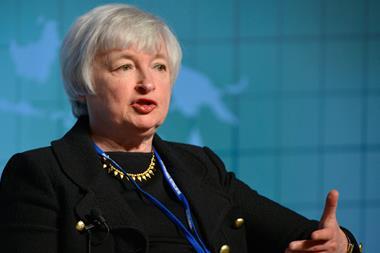The UK government’s framing of its backtrack on net zero policies in terms of social fairness is unjustified, according to comments from an official at the Principles for Responsible Investment (PRI).
Yesterday the UK prime minister Rishi Sunak announced a “new approach to net zero”, including a delay to the ban on diesel and petrol cars and a relaxation on the phaseout for the installation of gas boilers. The speech has triggered critcism from green groups, business leaders and investors, with carmakers in particular angered.
In his speech, Sunak said the revised approach was necessary because “it cannot be right for Westminster to impose such significant costs on working people especially those who are already struggling to make ends meet and to interfere so much in people’s way of life without a properly informed national debate”.
Many green investors and advocates argue for the need for a “just transition”, but according to comments from Rose Easton, interim chief RI ecosystems officer at the PRI, it would be inappropriate to give the government credit for taking such an approach.
“This latest rollback on net zero policies by the UK government unjustifiably assumes that staying the course on imperative long-term goals is incompatible with addressing immediate cost of living concerns,” she said.
“Transitioning to meet net zero goals could reduce costs for the economy, attract £10bn per year of investment into the UK and create 600,000 new green, decent jobs by 2030.”
Easton added: “What investors need is a clear, consistent, and enabling policy environment that is critical to investor confidence and the fairness and viability of the low-carbon transition. This ongoing trend undermines the UK’s position as a global sustainability leader, impacts certainty around future investments, and delays the economic transition that is needed to achieve net zero goals.”
This messaging is in keeping with investor reactions to the prime minister’s approval of more oil and gas licences earlier this year.
Unhelpful, counterproductive
At WHEB Asset Management, partner and head of research Seb Beloe suggested the prime minister’s speech shouldn’t take up too much of investors’ energy.
“While Rishi Sunak’s move to delay multi-decade-agreed deadlines on the net zero transition is clearly unhelpful, it does nothing to change the direction of travel,” he said.
“It may give laggards more time to prevaricate – pushing up costs in financial and environmental terms – but the transition to zero carbon is still inevitable.”
He also said “this is not a moment to catastrophise on what is likely to be another policy blip”.
“In fact, this announcement by Rishi Sunak may even prove to be his ‘Truss’ moment, in which all stakeholders – the investment community, markets, public opinion and even his own party – simply say no, and coalesce around a strengthened commitment to the reduction of fossil fuels and speedy transition to a low carbon, sustainable economy.”
“It seems like a counterproductive position to take at a time when the Department for Work and Pensions is looking at ways to encourage institutional investment in UK businesses”
Pavan Bhardwaj, head of investment and trustee director at Independent Governance Group (IGG)
Liz Truss was the prime minister a year ago when her and her then chancellor’s emergency budget saw the UK defined benefit pension fund sector nearly collapse as markets rejected the “growth plan” and Gilt yields soared, triggering collateral calls for pension funds with LDI strategies. Truss lasted less than a month after the budget.
In a somewhat similar vein to Beloe, Pavan Bhardwaj, head of investment and trustee director at Independent Governance Group (IGG), said: “In the grand scheme of things, the scaling back of the government’s net zero ambitions are unlikely to make a material difference for most trustees.”
From the perspective of trustees, “what happens in Westminster is likely to stay in Westminster and is unlikely to alter their approach”, Bhardwaj added, while acknowledging that “there is no escaping that the optics of this announcement are unhelpful when it comes to setting the tone for more ambitious net zero targets in future”.
“A softer stance on climate change will also make the UK a less attractive prospect for institutional investors with climate objectives, so it seems like a counterproductive position to take at a time when the Department for Work and Pensions is looking at ways to encourage institutional investment in UK businesses.”
Read the digital edition of IPE’s latest magazine























